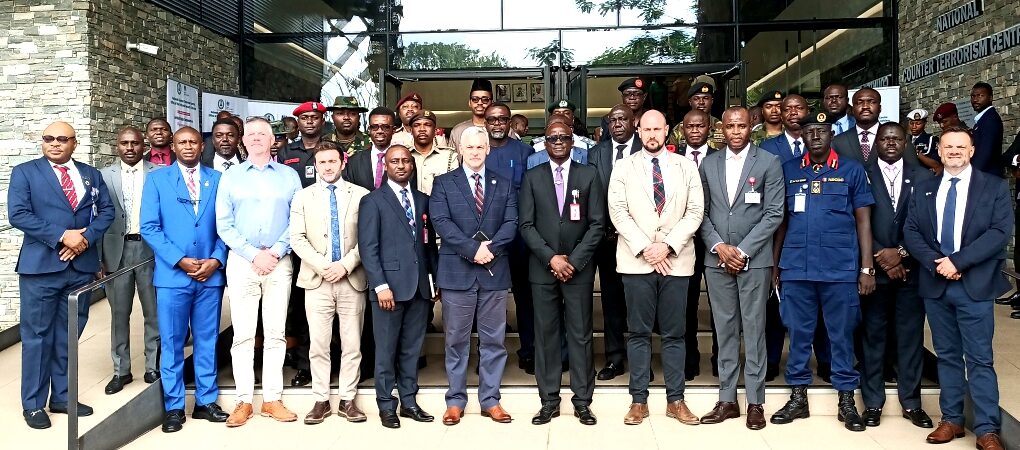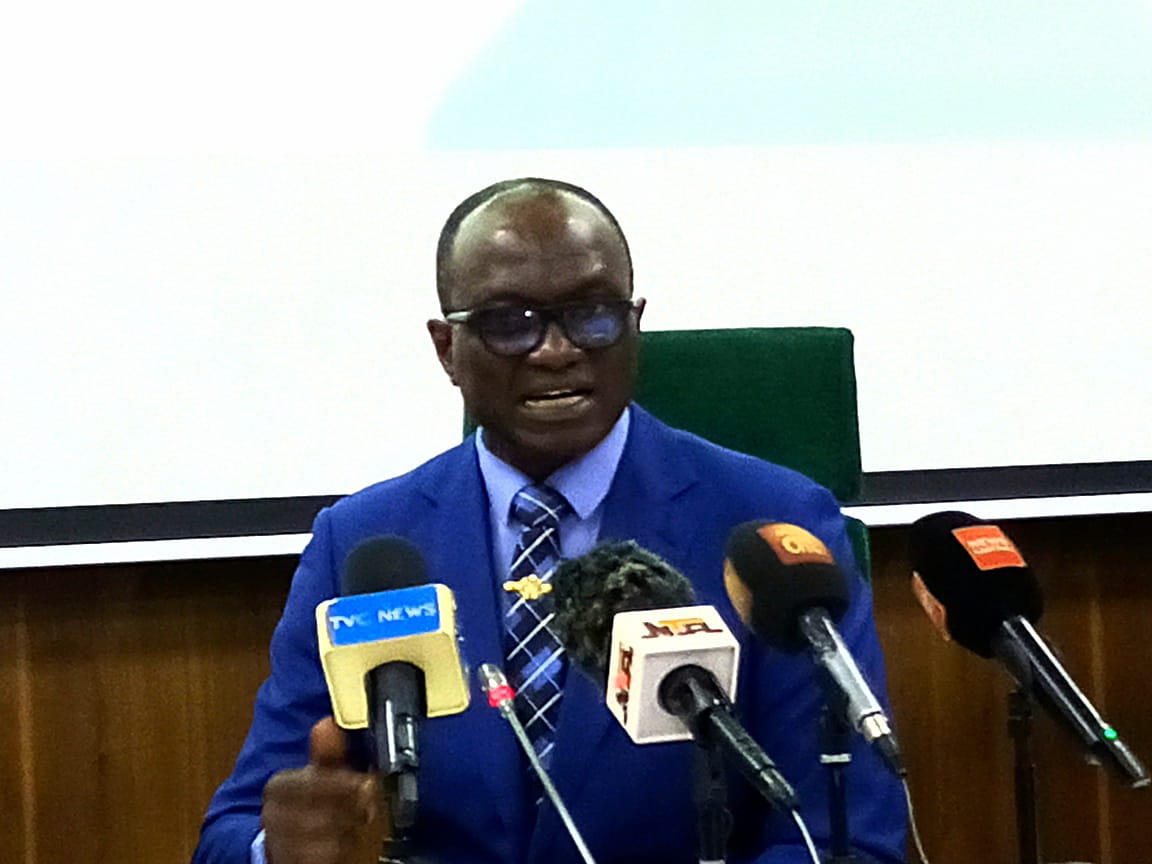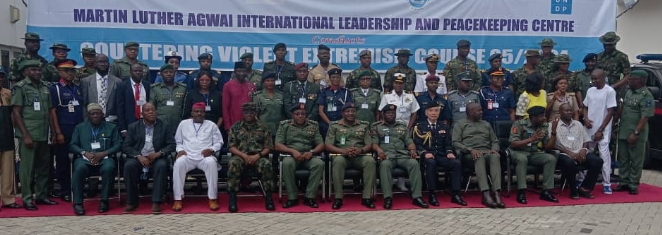249 total views today
By Sumaila Ogbaje
The fight against terrorism in Nigeria is not just about battling external enemies; it also entails confronting the internal threats that enable terrorist groups to thrive.
Fifth columnists, who may be sympathisers, collaborators, or even moles within security agencies, complicate the security landscape.
Nigeria’s counter-terrorism efforts are constantly evolving, but one aspect remains constant– the presence of fifth columnists–who seek to undermine these efforts.
From corrupt officials to terrorist sympathisers, these individuals or groups pose a significant threat to national security.
There are categories of individuals who have motives, intents and interest to undermine the efforts of the government, military and other security agencies in tackling the menace of terrorism.
Over the years, terrorism has taken a toll on livelihoods and national well-being, especially in the North Eastern States of Borno, Adamawa and Yobe.
Also, in the North West and North Central, there are elements destabilising the socio-economic and social well-being of the affected states like Katsina, Zamfara, Niger and Plateau, among others.
With particular focus on the North East, the Joint Task Force Operation Hadin Kai (OPHK) has sustained efforts towards tackling the challenge over the years.
These efforts, have at some points, suffered some setbacks due to the unwholesome roles played by these “fifth columnists” who have submitted their loyalty to the common enemies they were meant to confront.
The Theatre Commander of OPHK, Maj.-Gen. Abdulsalam Abubakar, recently disclosed the identities of the fifth columnists from within who have sabotaged and compromised the operational successes of the theatre.
While speaking during a media tour facilitated by the Directorate of Defence Media Operations, Abubakar lamented the activities of fifth columnists which undermine the overall success of their operations.
According to him, a few soldiers motivated by greed are involved in ammunition racketeering, deliberately diverting arms from the military stockpiles and supply chains to terrorists.
He said that such actions eroded battlefield morale, reduced troops’ effectiveness, and strengthened enemy resistance.
Abubakar cited a most recent incident which occurred on Feb. 24, when a soldier of 144 Battalion, was arrested with 30 rounds of 7.62mm specials at Tashin-Karo Kano by a military police K-19 on route search operations.
“Consequently, the theatre has continued to warn troops at all levels on the severe repercussions and sanctions of ammunition racketeering.
“Those found culpable have been dismissed and handed over to the police to serve as deterrent.”
The theatre commander said that troops of OPHK had apprehended 18 serving soldiers and 15 policemen selling arms to non-state actors since August 2024 through the Operation Snowball which was unveiled in August 2024 to counter-ammunition racketeering within the theater and beyond.
According to him, the operation is being conducted across 11 states with suspects arrested in Bauchi, Benue, Borno, Ebonyi, Enugu, Lagos, Plateau, Kaduna, Rivers, Taraba and the Federal Capital Territory.
“So far, a total of 18 soldiers, 15 mobile policemen, and 8 civilians, including a traditional ruler have been arrested.
“Preliminary findings from ongoing investigation reveal community pressure on serving security personnel to supply arms and ammunition for communal conflicts as driving factors.
“It is also worth mentioning that the lucrative nature of trading in ammunition is also a driving factor for its persistence.”
The theatre commander disclosed that one Sgt. Ameh Raphael, an Armourer of 7 Division Garrison, who has been in the trade since 2018, and Sgt. Seidi Adamu of 3rd Division Ordnance Services, who has also been in the trade since 2022, had over N45 million and N34 million respectively in their accounts.
He added that investigation also revealed that a whooping sum of N135 million was discovered to have passed through the account of a policeman, Insp. Enoch Ngwa who was arrested for arms racketeering.
“To this end, a more stringent punishment is necessary to act as deterrent,’’ he said.
Speaking further, Abubakar said the troops also recorded significant progress in the fight against terrorists’ logistics suppliers and collaborators with more than 186 terrorist logistics suppliers, spies and collaborators being apprehended across the theatre of operation from January to the date.
He said to counter the threat, the Joint Intelligence Mission Center, military intelligence base, and the National Drug Law Enforcement Agency had intensified efforts to disrupt these networks.
According to him, lack of tracking device has continued to mitigate the arrest of logistic suppliers.
He also raised concerns about the observed increase in cases of collusion by some non-governmental organisations who convey additives and food items to terrorist locations under the guise of humanitarian assistance.
More so, an expert in Military Studies, Dr Sani Abubakar, said he had consistently expressed belief that there were individuals undermining the government’s counter-insurgency (COIN) operations, both among the local population and within the military ranks.
He said that the level of intelligence that the terrorists possessed, which often gave them a significant edge during their attacks, clearly pointed to the existence of traitors and saboteurs who assist them.
According to him, in the realm of terrorism and insurgency studies, the local community often serves the insurgents and terrorists much like water does for fish.
“Some of these saboteurs act out of a desire for revenge or ideological convictions, but the majority are motivated by financial gain.
“Indeed, many of those who compromise military operations, leak sensitive information, and provide intelligence on our bases do so primarily for monetary rewards.
“What is needed is for the military high command to invest me on intelligence gathering, and collaborate more with the DSS and the police; they must also collaborate with the governments of Chad and Niger Republics in this regards,’’ he said.
Weighing in, Maj.-Gen. Ibikunle Ajose, the General Officer Commanding (GOC) 8 Division Nigerian Army and Sector Commander, Operation Fansan Yamma, said the military high command was proposing life imprisonment or death penalty for personnel selling or leasing arms or ammunition to bandits and terrorists.
Ajose said that any soldier convicted of collaborating with bandits or terrorists should face severe penalties.
He said the military had taken adequate measures to track and block the activities of saboteurs who are collaborating with the enemies.
“At present, the military is proposing life imprisonment or death penalty for personnel selling or leasing arms or ammunition to bandits and terrorists,” he said.
Moreover, the Secretary -General, International Institute for Professional Security (IIPS), Mr Abdullahi Jabi, said the revelation by the military about the existence of saboteurs from within should be a source of worry to the Federal Government to be seen to be decisive.
Jabi said the entire military architecture needed to be reviewed to be more of professional military officers that they used to be.
He said that the military personnel must have confidence that the government was committed to their welfare and well-being of their family should anything happens to them while fighting for the nation.
“To achieve that, they have to review their salaries, allowances, and their motivational incentives like housing; government should build houses for all the military personnel free of charge.
“If they die in the battlefield, they must pay their money in less than one month to their families and relations and take responsibility for the children left behind in terms of schooling and job opportunity.
“This must be done clearly for them to know that the patriotism of the nation is in their hearts, and they are ready to die for what they are working for.’’
Jabi however supported the calls that any personnel found culpable in collaborating with terrorists should be summarily executed to serve as deterrent to others.
“If they are caught collaborating with the enemies, they should be summarily executed on the field for others to know that the consequence will be very severe,” he said.
Stakeholders say the presence of fifth columnists in Nigeria’s fight against terrorism highlights the complexity of the security challenge and the need for a multifaceted approach.
They believe that enhanced vetting processes for individuals working in sensitive positions within government and security agencies, especially the military will be an effective strategy to deal with internal sabotage.(NANFeatures)
***If used, please credit the writer and the News Agency of Nigeria.









